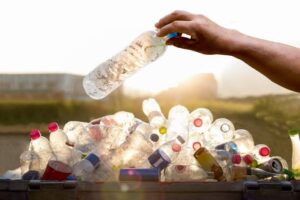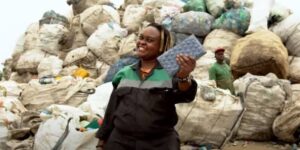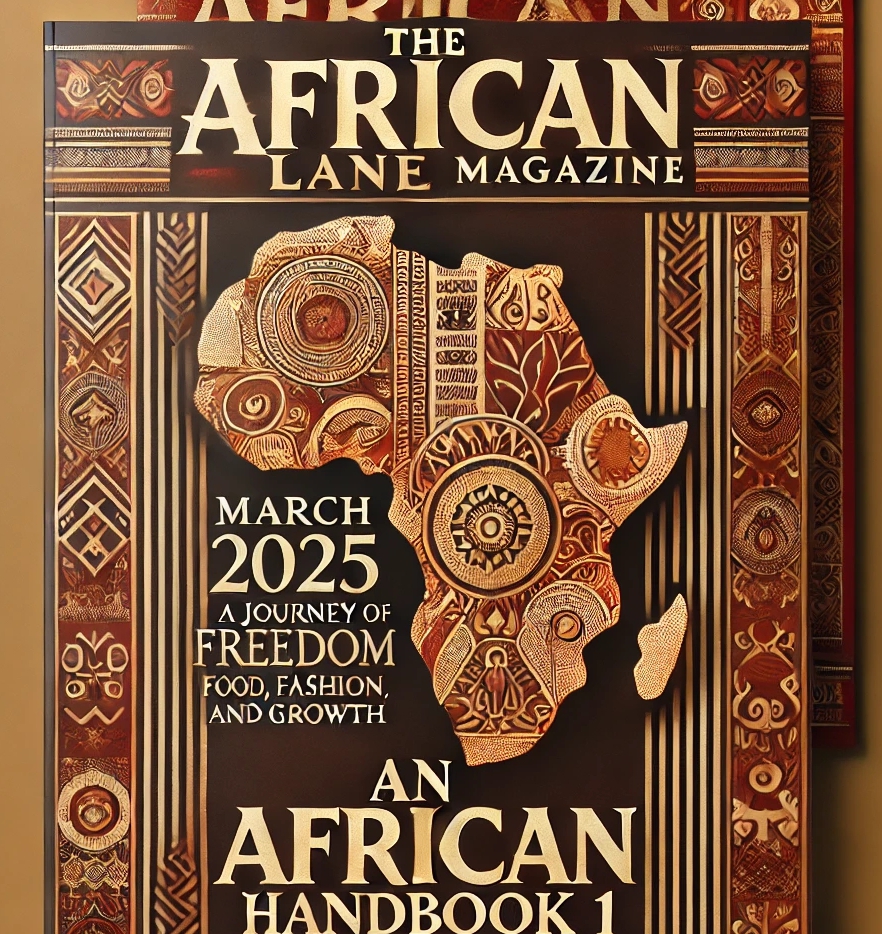Kenyan women recycles plastic waste into bricks stronger than concrete


According to Matee, “Plastic still has value…, I wanted to use my education in applied physics and materials engineering to do something about the problem of plastic waste pollution. But I was very clear that the solution had to be practical (living in Kenya practicality is everything), sustainable and affordable. The best way to do this was by channeling the waste into the construction/building space and finding the most efficient and affordable material to build homes,” With this, Matee started her company were plastic alongside mountains of oil cans, basins, yoghurt pots and other waste are crushed into small coloured flakes in her factory in Nairobi, Kenya.
These bricks are to be used in construction and are stronger, more lightweight and cheaper than cement.

The shredded plastic is mixed with sand and heated at extreme temperatures, becoming a viscous and malleable material which is shaped into bricks of all sizes.
According to report, the company, produces 1,500 bricks from household or industrial plastics everyday. They are already paving sidewalks, alleys and streets in Nairobi, and could soon also be an alternative material for building low-cost houses.
The end product: a paver two to seven times stronger than cement, but twice as light and even 15 per cent cheaper, says Matee.
In 2021, the company recycled 50 tonnes of plastic.
Gjenge Makers wants to enter the low-cost home market by designing pavers that can replace bricks, cement and other traditional materials.

According to Matee, “We want to be the leaders in alternative building materials,”
Gjenge Makers has created over
Matee won the Young Champion of the Earth 2020 award, the United Nations’ highest environmental honour. The award recognises seasoned environmental leaders who’s actions have a transformative impact on the environment.

A Greener World
Matee collects industrial and consumer plastic waste that cannot be reprocessed or recycled. These include high-density polyethylene used in shampoo and milk bottles; polypropylene used for flip-top lids, buckets and rope; and low-density polyethylene used as bags. The plastic is then mixed with sand, heated at very high temperature and compressed into beautiful bricks that vary in colour and thickness.

Gjenge pavers are not just stronger and lighter than concrete blocks, they hold twice the weight threshold of conventional concrete blocks. “Using plastic as a binding agent makes the blocks more sturdy and less brittle. A regular brick has sand, ballast, cement and water. All these elements have a weight implication whereas our paver blocks only have sand or ballast and plastic. This makes it lighter. They are 30 per cent cheaper than regular bricks as we use the lowest quality of plastic discarded by factories after manufacturing plastic products.” Matee worked on the idea for four years before starting production in 2020. She was also involved in the design, execution and fabrication of the machines that manufacture these blocks.

Paving the Future
The toughest part of the journey for Matee was making the first brick. “We had to figure out how to make the first brick to be able to show people what we were talking about. It was not the best brick but it proved our concept. Once we made the first one we went around showing and talking to people about setting up the machinery to make this bricks. There were countless rejections. People wouldn’t even listen to the idea before rejecting it. But I stuck to the concept. I knew I just needed one person to believe in the idea,” says Mattee bricks a day.
Source Africannews and Architecturaldigest





